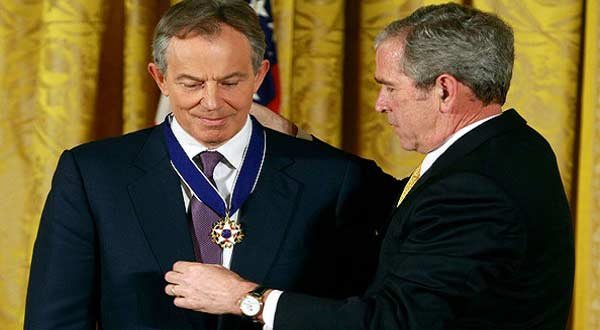
NEIL BERRY
[dropcap]S[/dropcap]ix years late, the unpublished report of the Chilcot Inquiry into British involvement in the Iraq war is a growing national scandal. Now UK Prime Minister David Cameron is insisting that the inquiry’s chairman, Sir John Chilcot, publish the report without delay.
The delay is the result of granting those who testified to the inquiry the chance to respond in detail to draft criticisms in Chilcot’s report. Astonishingly, the inquiry’s 150 witnesses — the key figure among whom is former Labour Prime Minister Tony Blair, who launched the war in April 2003 — were under no great pressure to respond promptly.
Cameron is responding to the outrage of families of soldiers who died in Iraq and among the British public. That outrage is not mitigated by the knowledge of the monumental cost of the inquiry in a time of austerity. Sir John himself receives £790 per day for his services. Tribal politics may also come into the matter. Cameron is a Conservative Prime Minister demanding publication of a report certain to be damaging not just to a former Labour prime minister but also to the Labour Party itself.
It was Blair’s successor as prime minister, the former Labour Chancellor of the Exchequer, Gordon Brown, who commissioned Sir John Chilcot, a retired civil servant, to conduct the inquiry. The expectation was that Chilcot would deliver his report in the space of a year and that it would address the concerns of bereaved families and the wider public while also teaching lessons that would strengthen British democracy.
The long shadow cast by the Iraq war hangs over this summer’s campaign to elect a new leader of the Labour Party. The widespread perception that Tony Blair committed the UK to military action on a false pretext is not the least of the reasons why the left-wing Labour MP, Jeremy Corbyn, has become the favorite to win the contest. Corbyn was among the minority of MPs who opposed the war. He pledges that if he is elected leader he will make a formal apology on behalf of the Labour Party, accepting that in declaring pre-emptive war on Iraq, Tony Blair broke international law.
If the Labour Party splits into factions, as it may well, it will be in no small degree because of divisions over the Iraq war that remain unhealed. “Blairites” maintain that the three governments over which Tony Blair presided between 1997 and 2007 did much good work, such as tackling child poverty, which should never be forgotten. Others believe that whatever good they did was eclipsed by the deaths of incalculable numbers of innocent Iraqi people in a war for which Blair shares responsibility with US President George W. Bush. This may be said to be a profound moral division between those who embrace the concept of a common humanity and those whose idea of humanity is altogether more ethnocentric.
Many in Britain and beyond believe that Blair is guilty of war crimes and crimes against humanity. Many believe too that he had already made a clandestine pledge with George W. Bush to wage war on Iraq before the matter was debated by the parliament. Blair may not emerge from Chilcot’s report more compromised than he already is. However, the endlessly postponed publication of the report underlines how high the stakes in the matter are — not just for Blair but also for the British state itself.
An acknowledgement by a new Labour Party leader that the war was illegal could yet combine with Chilcot’s findings to leave Blair more exposed to grave charges than he has hitherto been. What has handicapped the Chilcot Inquiry is that it was led by a civil servant, not a judge, and that witnesses were not obliged to testify under oath. It hardly helped, either, that the Chilcot panel included not a single lawyer, whereas Blair and other ministers in his government questioned by the inquiry are lawyers almost to a man. The cynical view is that all this was designed for Blair’s advantage.
The human rights lawyer, Anthony Lester, believes that Chilcot and his colleagues have been enmeshed by “legalism.” They have become victims, he says, of “justice done to death.”

